World Cup chances up in the air but Smith makes Major call on T20 future, Green dumped despite huge IPL deal
Test great Steve Smith is to play for Washington Freedom in the second season of Major League Cricket as the Australian influence in the…
Opinion
This is a follow-up to an earlier piece I did on Greg Chappell related to his book Not Out.
That focused on his relationship with Queensland cricket. This one explores Chappell’s account of his time as national selector. Times, rather.
Those times included when he was playing, then in 1984-88, 2010-11, and 2016-19. I offer a summary of what I thought were the most interesting bits in the book from these periods.
1981 Ashes
Greg Chappell famously didn’t go on this tour, in part due to burn out after the underarm incident. However he still helped pick the squad – apparently the last time he did that prior to becoming a selector after retirement.
Chappell says he stepped out of the room when the panel discussed the selection prospects of his brother Trevor, who did end up being picked.
He also says Kim Hughes, who took over the captaincy from Chappell, had no say in the squad make-up, and that Chappell told selector Phil Ridings that Rod Marsh should be captain instead of Hughes, but Ridings said no as Marsh had played World Series Cricket and was too close to Ian Chappell.
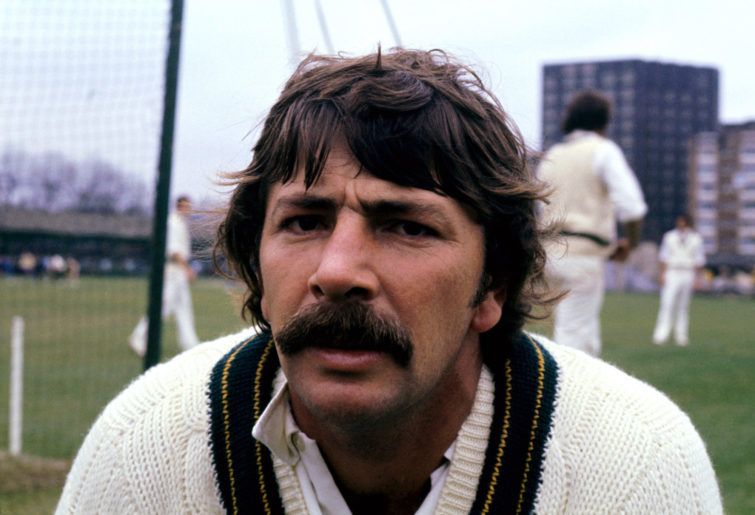
Rodney Marsh (Photo by S&G/PA Images via Getty Images)
1985 Ashes
Chappell was on the selection panel for these Ashes. Their most controversial decision was not picking Kim Hughes, who earlier that summer had resigned from the captaincy in tears and been dropped from the Test side, but who had since scored a Shield century.
Chappell says Hughes was overlooked so that he could take a “break” but that Chappell was still keep on using the West Australian in the Test team later.
Chappell was a big believer in breaks, attributing his longevity in the game in part to his decision to avoid overseas tours in the early ’80s. Chappell could always get his old spot back, though…
Anyway, according to Chappell, this message of Hughes still being in the selector’s plans (“which as ever fell to the chairman, Lawrie Sawle to deliver”) didn’t get through, or wasn’t received/understood, and so Hughes signed to tour South Africa.
While Chappell blames the message not going through on Sawle, he also says a lot of nice things about Sawle.
1985-86 summer
This traumatic summer saw the end of the international careers of David Hookes and Wayne Phillips. Chappell says that before Hookes was recalled to the Test team, he told Hookes a 14-line paragraph about how he wanted Hookes to bat (it’s on page 19).
Then Chappell complains this exchange was simplified to him telling Hookes that he wanted the South Australian to change the way he batted. I think this may have been a reference to Hookes’ memoirs.
But wasn’t that true? I mean, he did tell Hookes to change the way he batted, didn’t he? Not that it worked – Hookes played a few Tests that summer, then was dropped and never came back.
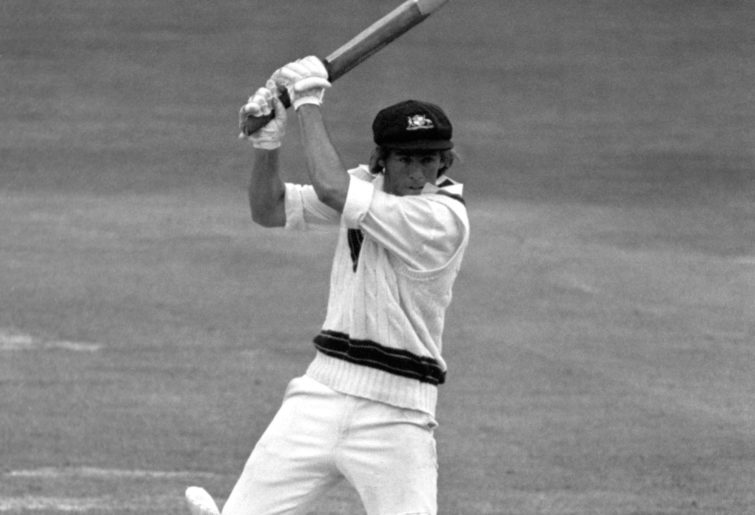
David Hookes.(Photo by S&G/PA Images via Getty Images)
In the book Chappell insists his communication as a selector was always good while admitting that there were a lot of times in his career where there was a miscommunication issue (Hughes, Hookes, Sachin Tendulkar, Rahul Dravid).
Chappell lists Hookes along with Wayne Phillips and Greg Ritchie as players who had “obstacles” for getting the best out of themselves at highest level. He doesn’t mention the selection panel effectively wrecked Phillips’ career as a batsman by picking him as a wicketkeeper.
1986-87 Ashes
Greg Ritchie was dropped during that series, basically for being a liability in the field and getting out when he was on 40. I don’t think anyone considers this a bad call on Chappell’s part except maybe Greg Ritchie.
More interestingly, Chappell says Dirk Wellham was recalled to the Australian team for the fifth Test solely as a potential captain – apparently they got sick of Border threatening to quit all the time.
Chappell said the board rejected the selection panel’s recommendation that Wellham be appointed vice-captain. He says Wellham was “probably not good enough as a player but he could have been a presentable captain for a short time”.
Chappell is harsh in the book on top-flight domestic players who never quite made it at Test level. He even writes “Every player who should have played a lot for Australia has done so.”
Stuart Law may disagree. And Jamie Siddons, Chris Hartley, Darren Berry, Martin Love, Cec Pepper, anyone from West Australia prior to the 1960s, and…
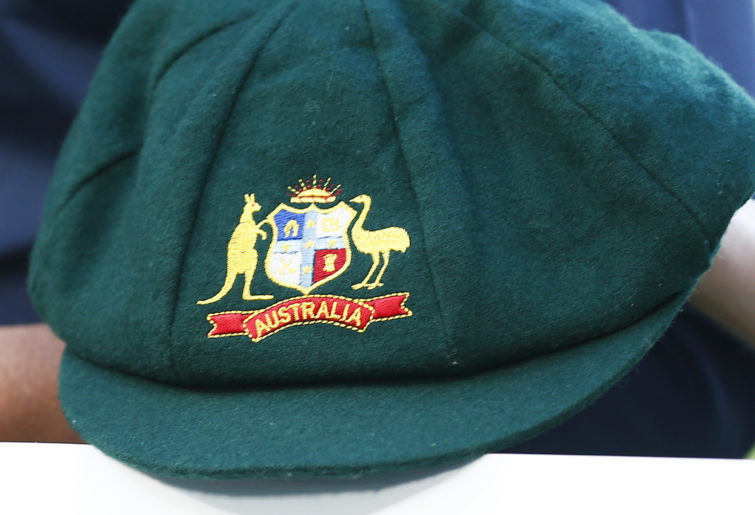
(Photo by Daniel Pockett – CA/Cricket Australia via Getty Images )
He also writes, “there will be ten-year players in any dressing rooms who only really have one year’s meaningful experience in them that they’ve repeated ten times.”
That’s harsh.
Chappell is no socialist when it comes to domestic cricketers. In Not Out he writes that there should be less domestic contracts to make cricketers “hungrier” – and that the top players should get more money rather than spreading it out down the contract list.
“I’ll never be convinced that professional cricket for every player in domestic ranks is in anyone’s best interests,” writes Chappell.
Chappell is one of many players who risked their careers so they could be paid more, only to turn around on retirement and say players are paid too much. Don Bradman was another one.
Chappell suggests allowing eight domestic teams for first-class cricket rather than six in order to help young players get through. Make Australian cricket stronger by weakening the standard of domestic cricket?
I think this disdain for solid-but-not-legendary cricketers is the big thing that held back Greg Chappell from ever building a truly great side, as captain, coach or selector.
He’s not that interested in building a top side of 11 players. What he’s really passionate about is picking champions. I hypothesised this in an earlier piece for The Roar – this book confirms it.
1988 Pakistan tour
Chappell says for the 1988 Pakistan tour the selection panel had resolved to “move on” from Greg Dyer as wicketkeeper.
Queenslander Peter Anderson was discussed but Chappell writes “his temperament was… highly strung and his glove work could wax and wane with his emotions, specifically those around how well he felt he was keeping wicket”.
Instead Chappell went for Anderson’s Queensland understudy, Ian Healy, who reminded Chappell of Rod Marsh.
Chappell brings up picking Ian Healy a lot. But it was a good pick. And to be fair Chappell also credits Lawrie Sawle with the decision to pick Healy.
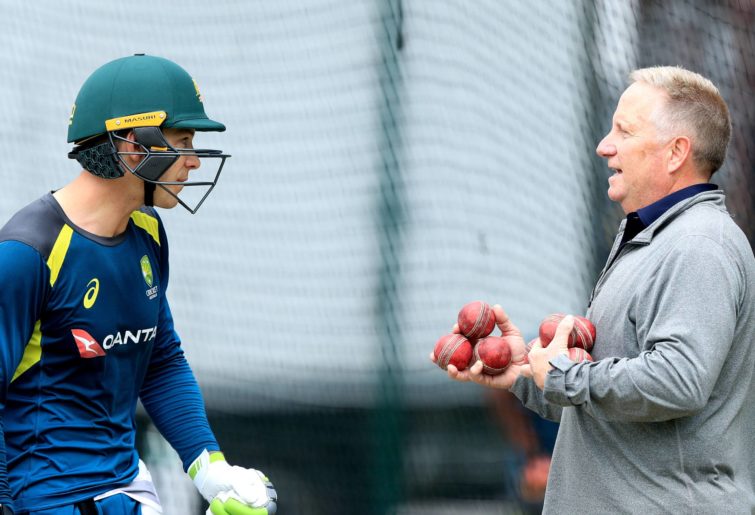
Tim Paine and Ian Healy. (Photo by Getty Images)
2010-11 Ashes
Chappell was recalled as national selector at the beginning of the summer and was given the boot the next year, including famously being banned from the Australian dressing room.
Chappell pretty much blames Australia’s defeat in the Ashes that summer on Ricky Ponting and Michael Clarke not scoring any runs.
He said at the beginning of the series he suggested to Ricky Ponting that the latter bat at four but Ponting refused. He also says that Clarke over-trained despite Chappell’s recommendations.
Chappell says he wanted Marcus North out of the side at the beginning of the summer having “held the spot since 2009 without ever making it his own”. That is a big call considering North made several Test centuries plus handy contributions with the ball.
Ponting argued successfully for North to start the series – though the West Australian was dropped after a few Tests.
Chappell alludes to his dressing room ban by saying selectors had to go in the dressing room because there was nowhere else to watch the games. Is that right?
He mentions Steve O’Keefe but doesn’t offer up why the spinner wasn’t picked at the beginning of the summer over Xavier Doherty, who Chappell says “reminded me a little bit of Brad Hogg”.
When Doherty struggled they overlooked O’Keefe again in favour of Michael Beer because “we liked his height and accuracy, the word from West Australia was that he was a pretty durable character and a little bit like Peter Taylor in that he’d played a lot go grade cricket at home before the Test”.
Chappell says “Ponting was tough on spin bowlers”, which was true. Nathan Lyon was picked for the Sri Lankan tour because he reminded Chappell of Ashley Mallett, and that turned out well.
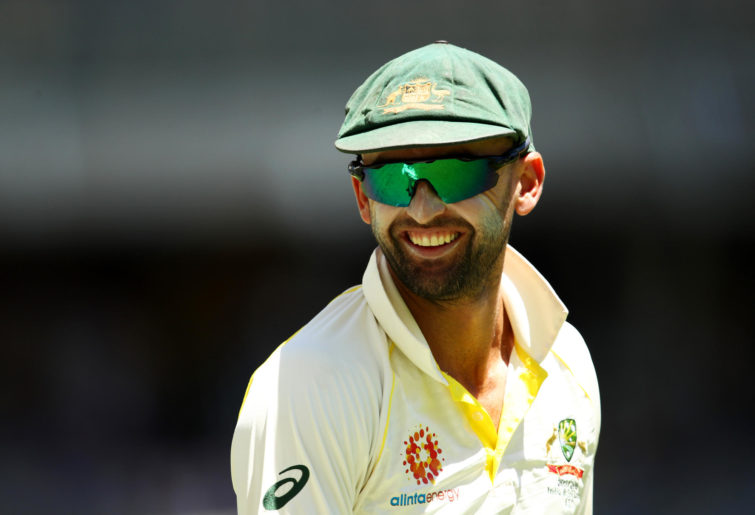
(Cameron Spencer/Getty Images)
Chappell doesn’t discuss why Andrew McDonald and David Hussey were overlooked that summer.
Intriguingly, he says Chris Rogers wasn’t picked in 2010-11, despite Australia’s wobbly top order, because at the time Rogers “was – rightly or wrongly – not a popular cricketer among his peers, something that was undoubtedly an undercurrent whenever we discussed him. It was a shame because there was, and is, a lot to like about him”.
So Australia ignored an opener with a first-class average of 50 for years because of rumours he was disliked?
Intrigue!
Chappell comments on Michael Clarke’s captaincy, saying “Clarke’s ambition for the job had left quite a few players wary of playing under him. It is hard to be a good leader if you hadn’t been a good follower”.
On that issue, Chappell seems to love telling captains they should give up the captaincy – he did this to Hughes (1983-84), Ganguly (2005), and Ponting (2010-11).
2011 World Cup
Chappell feels Ricky Ponting misused Jason Krejza as a bowler in this tournament by trying to get him to bowl like Harbhajan Singh. I’m not sure that’s why we lost the World Cup but it’s an interesting take.
Chappell was shown the door as selector in 2011 but he kept having opinions. For instance, he felt Rob Quiney’s selection in 2012 was a short-term selection to get the side to number one, sacrificing the future for the present. I’d never heard of Quiney being thought of like that before!
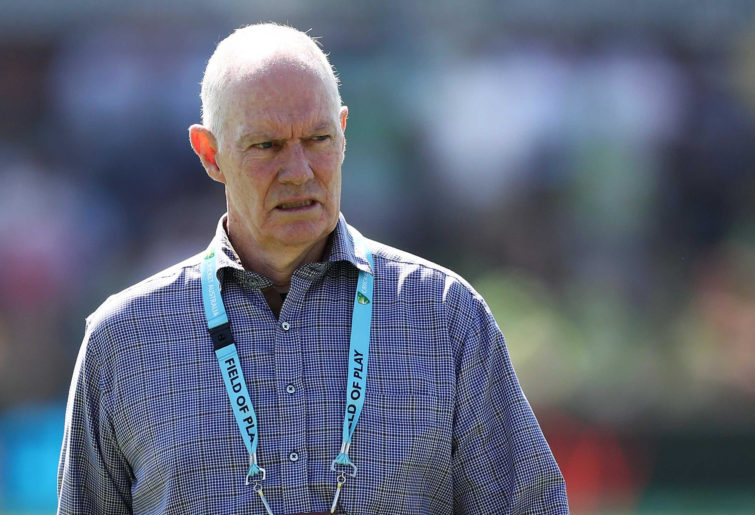
(Photo by Matt King – CA/Cricket Australia/Getty Images)
2016-17 summer
Chappell returned to selection duties in 2016, replacing Rod Marsh, who quit after five Australian Test defeats in a row.
Chappell made his impact felt very quickly, being part of the post-Hobart-disaster decision to bring in Matt Renshaw, Nic Maddinson and Peter Handscomb, whose selection is barely discussed in the book.
Neither is Chappell’s random ODI selection that summer of Sam “fabulous investment” Heazlett. This is very frustrating – I would genuinely have liked to hear Chappell’s thoughts on what happened with those players.
Chappell does say he wasn’t on board with the recall of Matthew Wade, saying he liked Wade as a player but thought he couldn’t keep.
2017-18 Ashes
Chappell was behind the pick of Tim Paine, who reminded him of Ian Healy, who reminded him of Rod Marsh.
Chappell writes, “Strange as it may seem now, Tim was not everyone’s favourite cricketer”. This book came out before Paine’s resignation.
The 2017-18 Ashes was the high water mark for the Test career of Shaun and Mitch Marsh (though you never know). Both enjoyed a lot of support under Chappell selection panels so I was keen to read his thoughts on the enigmatic brothers.
“Shaun Marsh had enough talent to warrant getting multiple opportunities,” writes Chappell.
“It is a disappointment, although not surmising in some ways, that he didn’t consistently reach the heights that he should have… The jury is still out, and may forever remain so, on his brother, Mitch, as well.”
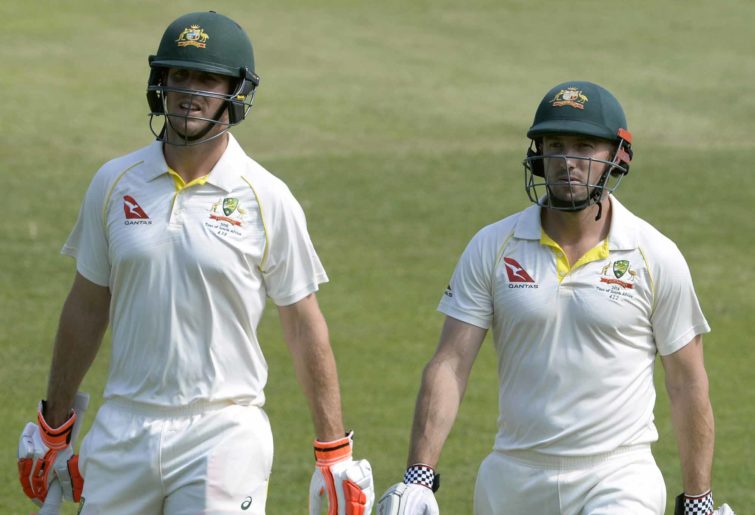
Mitchell Marsh and Shaun Marsh. (Photo by Lee Warren/Gallo Images/Getty Images)
Chappell feels Mitch may be over-coached but also says he gave the younger Marsh a little advice that helped the latter’s golden run of form in 2017-18 for four Tests.
Chappell also takes credit for Shane Watson’s purple patch in 2009, and a string of good knocks from South Australian batsman Ben Johnson (when Chappell was a trophy-free South Australian coach).
It’s interesting in all three cases the improvement never lasted. Chappell doesn’t explore that in his book.
Incidentally, the chapter on batting in Not Out is the best in the book.
Chappell and Glenn Maxwell in 2018
The most upsetting section for me was on Glenn Maxwell’s omission from the UAE tour in 2018.
Chappell refers to the fact that Maxwell was told not to commit to Lancashire so he could play for Australia A and possibly the national time. Chappell writes “those communications – which fly around with extreme frequency – should never be taken as a guarantee of selection for international matches”.
Chappell writes “there is something of the genius about Glenn at his best” and says Maxwell’s selection was discussed but they went for Travis Head and Marnus Labuschagne “with a long-term view to life after Maxwell generation was no longer around” (Maxwell is six years older than the other two) “and in the short term to making sure that the team [Steve] Smith and [David] Warner returned to was tracking in a positive direction.”
So picking Maxwell wouldn’t have been a positive because…? Chappell doesn’t say.
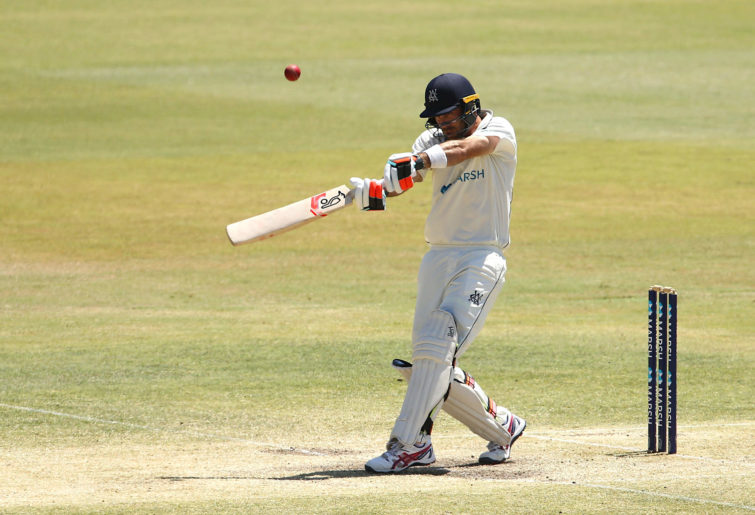
Glenn Maxwell.(Photo by Paul Kane/Getty Images)
Chappell says they picked Aaron Finch in the UAE “to find out if he could make the transition from limited overs to Test cricket” and liked Labuschagne and Head because of “their love for a contest”.
Maybe Maxwell ordered a coffee wrong or something.
Chappell’s advice to players about selection is “don’t ever think that someone’s not watching you”, which feels really creepy.
In summary, Not Out is a fascinating read for cricket fans. The insights into the Chappell mind are invaluable – even the domestic side, including dinner with Trevor, and a chapter from wife Judy (I think it should be a law that whenever a cricketer writes a memoir their partner should write at least a chapter in it).
It just feels so incomplete. And confusing.
But maybe that’s why Chappell never reached the heights as a selector that he did as a player. He was too incomplete and confused.